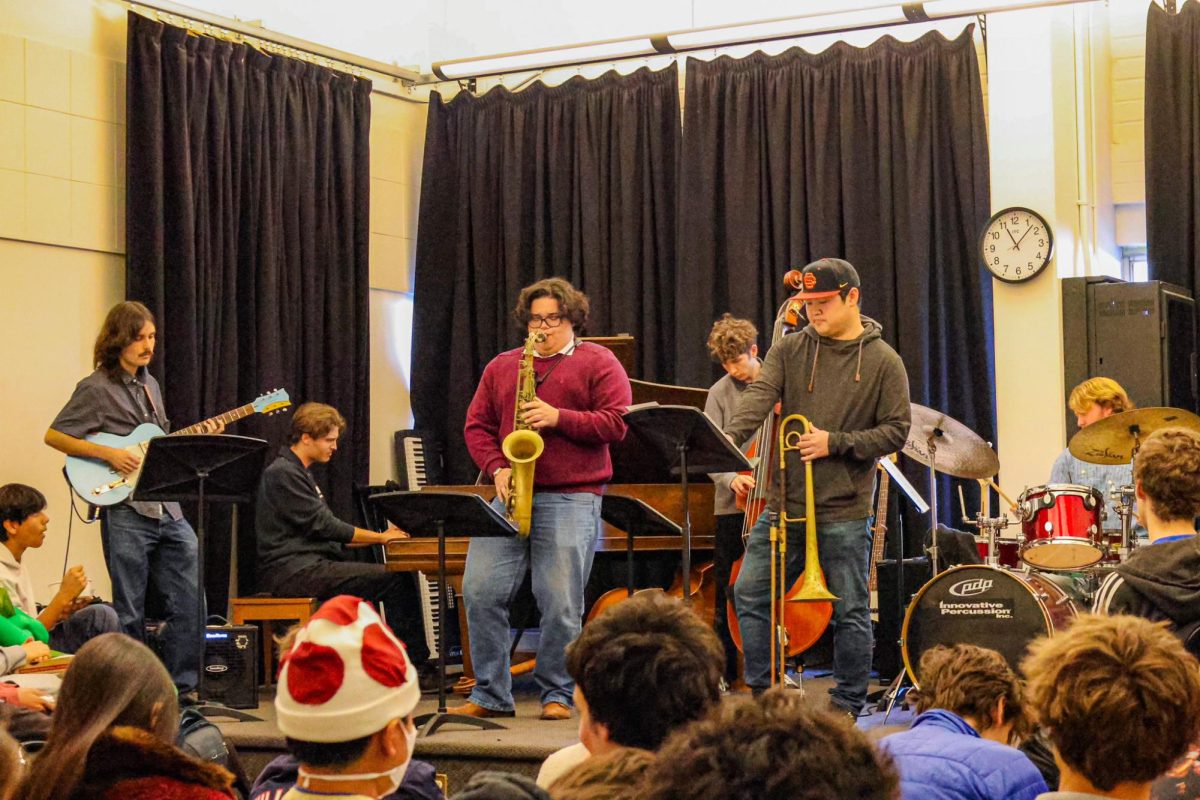By Jamie Chang
When lights rose on the stage of the upper school production of “The Laramie Project” last weekend, the director and other adults who had helped create the play sat in the audience as students ran the show.
“No one is holding their hands,” Pugh said.
For each play and musical, technical theatre teacher Rees Pugh and the director choose students who show interest in contributing to the show in a leadership position. For the winter play, “The Laramie Project,” Danielle Wolf â14 was stage manager, Benjamin Vigman â13 was the lighting designer, Nadine Perez â14 was the assistant stage manager and Patric Verrone â13, Natasha Simchowitz â13 and Rebecca Hutman â12 were assistant directors.
As the stage manager, Wolf attended every rehearsal since auditions.
“I write down all the blocking, light cues, sound cues and backstage cues during the rehearsals,” Wolf said.
The stage manager must note the blocking at rehearsals because scenes may be rehearsed and not revisited for weeks. During the actual production, Wolf calls the entire show, meaning she tells the light and sound board operators when to go to the next cue.
“Once the show is going on, Iâm in charge,” Wolf said.
Wolf also managed “Grease” at the Middle School and worked backstage for “Fiddler on the Roof” this year.
“The upper school stage managers are given much more responsibility,” Wolf said. “I love seeing the show develop over time. There is a huge difference between what we originally started with and what everyone is going to see on stage.”
During tech week, the week prior to the show, the director teaches the stage manager all of the cues who then teaches the board operators.
“The director and all other adults should be able to sit in the audience during the show,” Pugh said.
As the lighting designer, Vigman was responsible for “creatively lighting the show in context of its themes, moods, and content,” he said.
Vigman created the lighting by first coming up with a lighting plot that is “conducive to the artistic objectives” he is trying to meet. Once he made a plan, Vigman worked with the master electrician to execute it and hang the lighting fixtures needed.
“Only after setting up both the lights themselves and the light board did I actually start the process of designing the show,” Vigman said. “I enjoy all the work that I have to do to get the job done and the whole process is very satisfying.”
Vigman was also a lighting designer for the Playwrights Festival in 2011.
“I feel that the âLaramie Projectâ is a much larger undertaking and the first chance Iâve had to be a main contributor to a show from start to finish,” he said.
Vigman has always been interested in theatrical lighting and has worked as an electrician, board programmer and operator.
Although Perez has been a light board operator, sound board operator, backstage manager and stage manager, this was her first time acting as an assistant stage manager. She helped the stage manager call the show and had to ensure that the show was properly set for the beginning of each act.
Verrone said that he and the two other assistant directors, Simchowitz and Hutman, were a second, third or fourth pair of eyes and ears for director Ted Walch. The three took down blocking, gathered missing actors and read lines if someone was absent. Each of the students had volunteered for the position.
“We have an incredible cast and an amazing director to work under, it has just been incredible,” Veronne said.  Â
Â




























